Turkey vows support for Azerbaijan amid Armenia clashes, EU urges talks
Turkey has sharply criticized Armenia in the wake of clashes with Azerbaijan over the breakaway region of Nagorno-Karabakh, while the European Union called for a halt in fighting between the two sides of the clashes.
In a statement on Sunday, Turkish President Tayyip Erdogan called on Armenian people to stand against leaders who he said were "dragging them to catastrophe".
"Armenia, which has added another to its attacks against Azerbaijan, has shown once again that it is the biggest threat to peace in the region," Erdogan said.
He said international reaction to the conflict had been insufficient.
Turkey calls on "the entire world to stand with Azerbaijan in their battle against invasion and cruelty," Erdogan said.
The Turkish president made the remarks following a phone call with Azeri counterpart Ilham Aliyev. Turkey has traditionally backed Azerbaijan.
Tensions flared up on Sunday, with Armenia accusing Azerbaijan of shelling Karabakh and Baku saying Armenian-backed militants attacked Azeri military and civilian positions.
Armenia said its troops had destroyed three tanks and shot down two helicopters and three unmanned aerial vehicles.
The country declared martial law on Sunday and total military mobilization following clashes with Azerbaijan over the breakaway region.
Hikmet Hajiyev, senior adviser to Azerbaijan's President Ilham Aliyev, accused Armenian forces of launching "deliberate and targeted" attacks along the front line.
Azerbaijan's defense ministry said Armenia had attacked civilian settlements and military positions along the "contact line," a heavily-mined no-man's-land that separates the Armenian-backed forces from Azeri troops in the region.
The ministry said some civilians had been killed "as a result of the intensive shelling" by Armenia, and that Azerbaijan had taken retaliatory measures.
Azerbaijan said it had "complete advantage over the enemy on the front."
Authorities in Nagorno-Karabakh said that 16 of their servicemen were killed and more than 100 wounded in clashes with Azerbaijan's forces.
Azerbaijan's parliament also approved martial law across the country and imposed curfews on Sunday.
The landlocked mountainous region of Nagorno-Karabakh is an Azerbaijani territory, but ethnic Azeris fled the territory in 1992 when Armenian separatists seized it in a move supported by Yerevan after the collapse of the Soviet Union.
Karabakh is the Russian rendering of an Azeri word meaning 'black garden', while Nagorno is a Russian word meaning "mountainous".
‘On the brink of full-scale war’
Turkish presidential spokesman Ibrahim Kalin earlier said Armenia had violated international laws by carrying out attacks.
"We believe this conflict can be resolved through peaceful negotiations, but the Armenian side has shown no interest so far other than continuing to occupy parts of Azerbaijan," he said.
Turkish Defense Minister Hulusi Akar also said Armenia must immediately cease what he called hostility towards Azerbaijan that could "throw the region into fire".
Armenian Prime Minister Nikol Pashinyan in a televised statement said Sunday that arch-foe Azerbaijan had declared war on his people.
Pashinyan said, Azerbaijan's "authoritarian regime has once again declared war on the Armenian people," adding, "We are on the brink of a full-scale war in the South Caucasus, which might have unpredictable consequences."
The new clashes follow a flare-up along their border in July which claimed the lives of 17 soldiers from both sides. In April 2016, some 110 people were killed in the most serious fighting in years.
Russian president urges 'end to hostilities' in Karabakh conflict
Later on Sunday, Russian President Vladimir Putin called for de-escalation in fighting between Azerbaijan and Armenia following the military flare-up between the two neighbors.
"It is important to make every effort to prevent further escalation in the confrontation. More importantly, there must be an end to hostilities," Putin said during a phone call with Armenian prime minister.
EU urges 'immediate return to negotiations'
The European Union called for a halt to fighting between the two adversaries over Nagorno-Karabakh region and an immediate negotiations.
In a Twitter post on Sunday, European Council president Charles Michel called for "an immediate return to negotiations, without preconditions".
"Military action must stop, as a matter of urgency, to prevent a further escalation," Michel said.
EU foreign policy chief Josep Borrell stressed the urgency of launching negotiations over Nagorno-Karabakh region.
"The European Union calls for an immediate cessation of hostilities, de-escalation and for strict observance of the ceasefire," he said.
A major conflict between Azerbaijan and Armenia could draw in top regional players Russia and Turkey.
Russia, which maintains close ties with Armenia, is the major powerbroker in the region. It leads the Collective Security Treaty Organization military alliance of ex-Soviet countries that includes Armenia.
Yerevan relies on Russian support and military guarantees because its defense budget is overshadowed by Azerbaijan's spending on arms.
Oil-rich Azerbaijan has tried to pitch itself to European countries as an alternative energy supplier to Russia.

Azerbaijan and Armenia frequently accuse each other of attacks around Karabakh and along the separate Azeri-Armenian frontier.
The conflict over Nagorno-Karabakh has been fuelling regional tensions for 30 years.
Ethnic Armenian separatists seized the region from Baku in a 1990s war that claimed 30,000 lives. A ceasefire was agreed in 1994, but both sides accuse each other of attacks.
Peace negotiations have been largely stalled since the ceasefire agreement. The last big push for a peace deal collapsed in 2010.
Russia slams US threats against Iran as ‘unacceptable’, pushes for de-escalation
Epstein left millions to children of ‘disastrous’ Oslo Accords architects: Ex-UN official
VIDEO | Neauphle-le-Château commemorates Islamic Revolution victory
‘No threats, no pressure’: Pezeshkian lays down terms for talks with US
Russia warns foreign intervention in Ukraine will be treated as 'direct threat'
MSF chief warns Israeli ban on Gaza operations will be 'catastrophic' for millions
‘No illegal demands’: Shamkhani says US talks may bear fruit if respect, logic shown
VIDEO | Iran prepared for both scenarios: Talks or self-defense



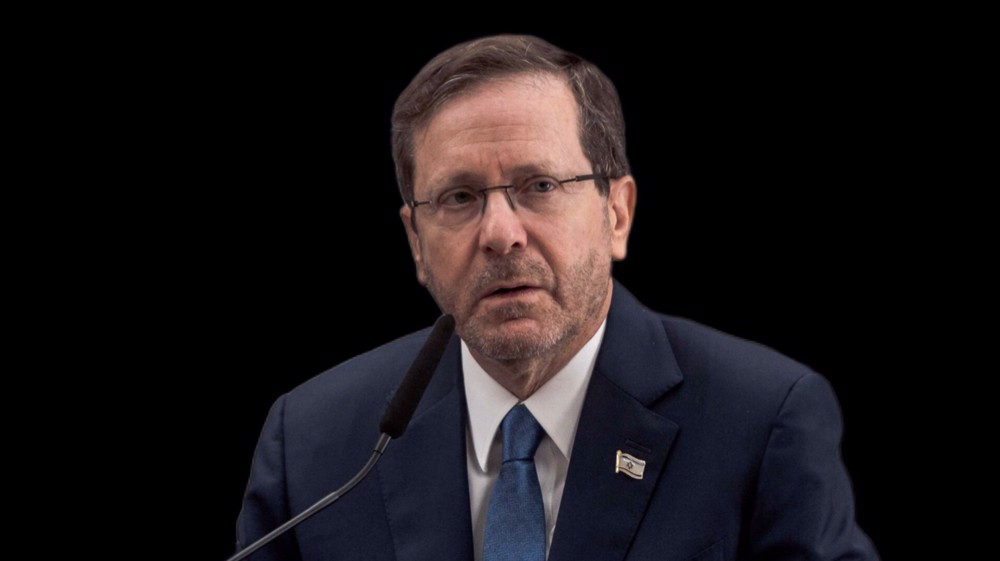








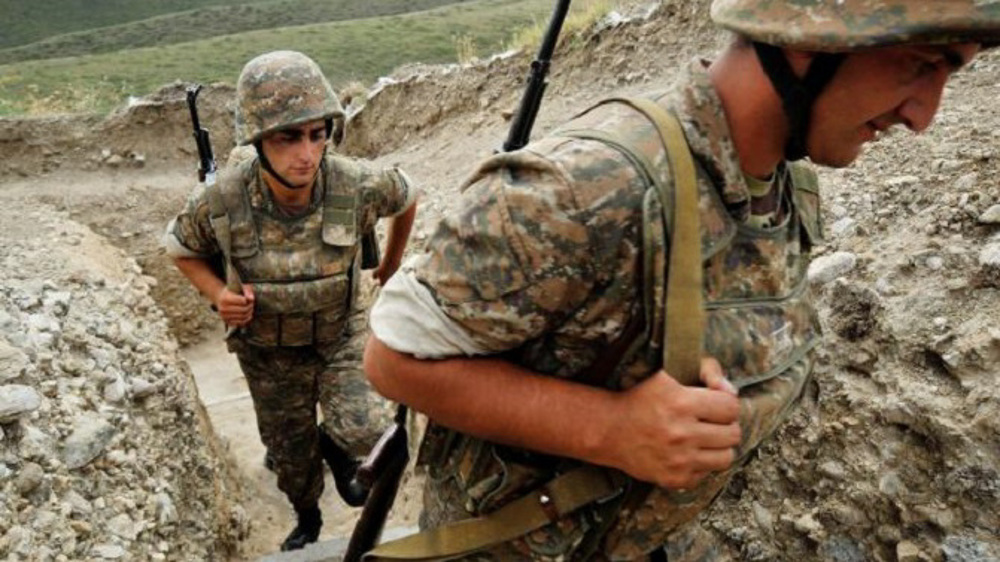
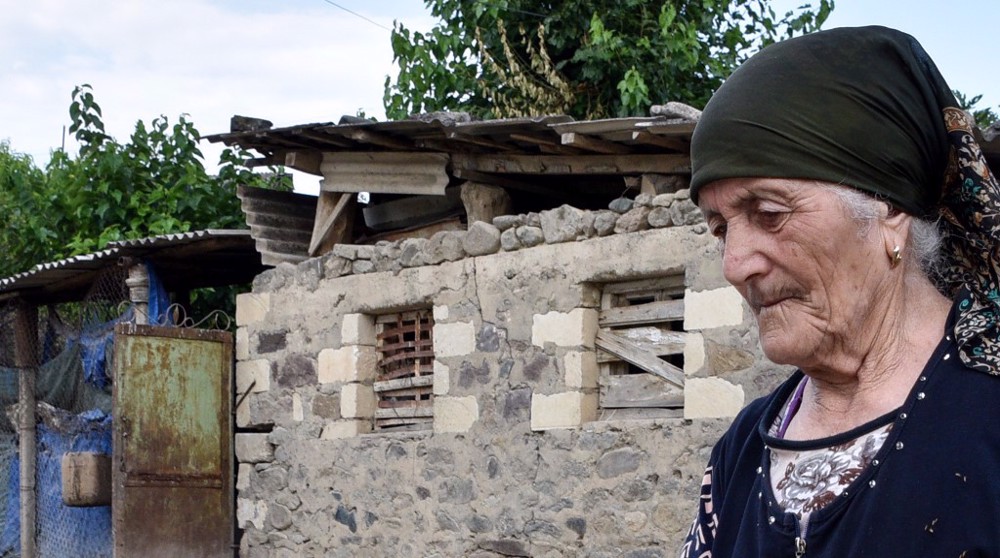
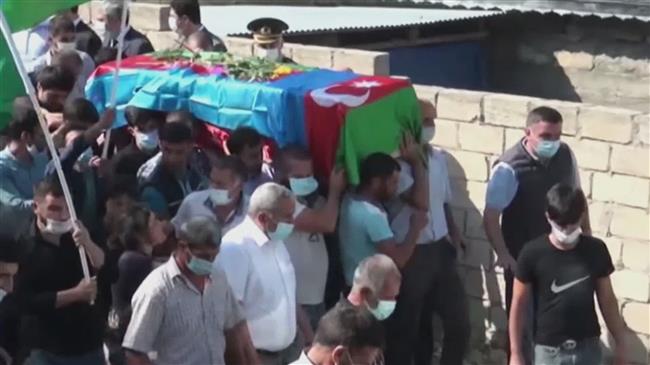
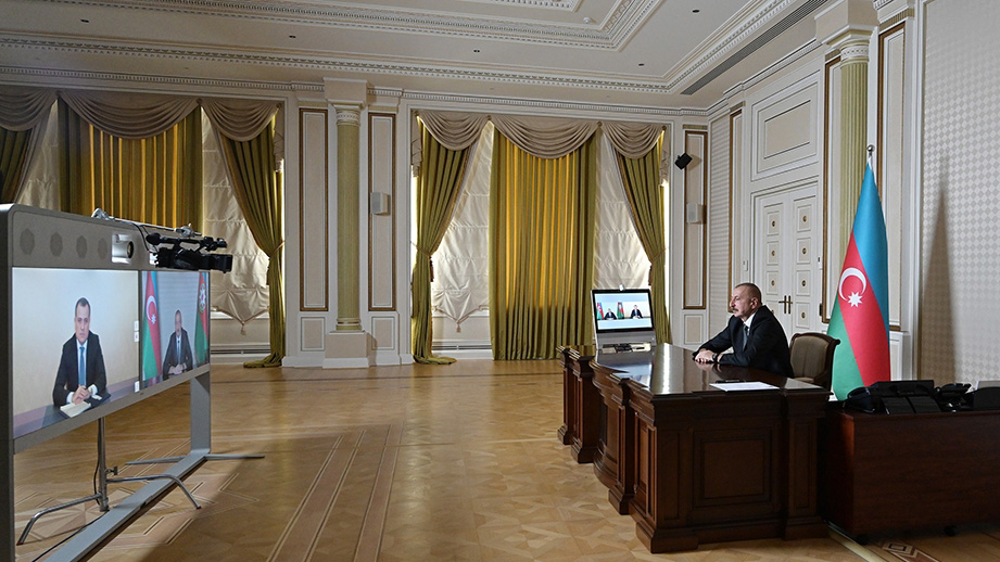

 This makes it easy to access the Press TV website
This makes it easy to access the Press TV website